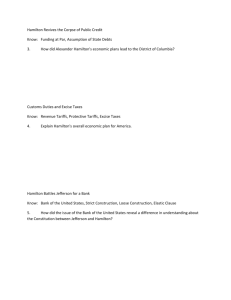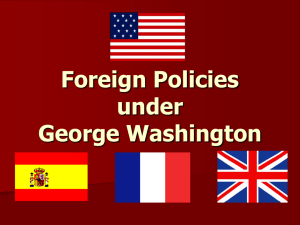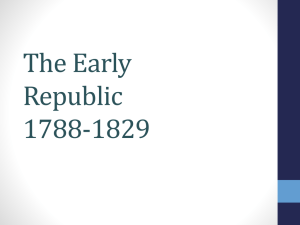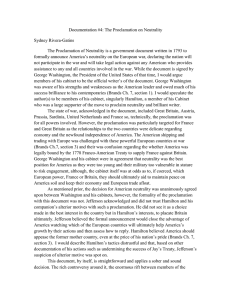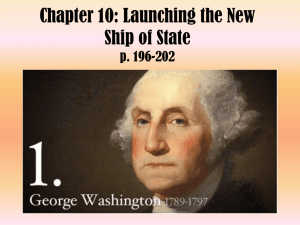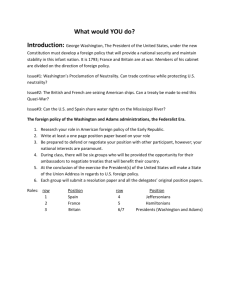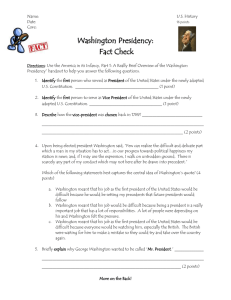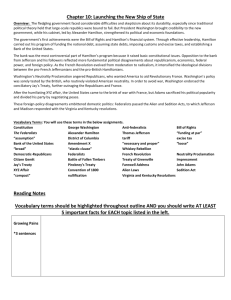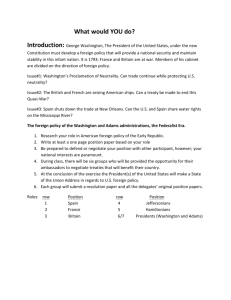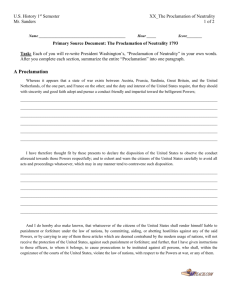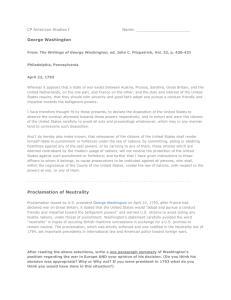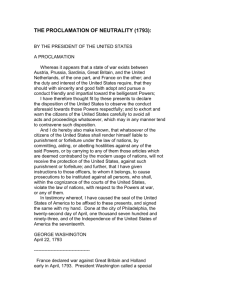Neutrality Proclamation: Washington's Policy & Debate
advertisement
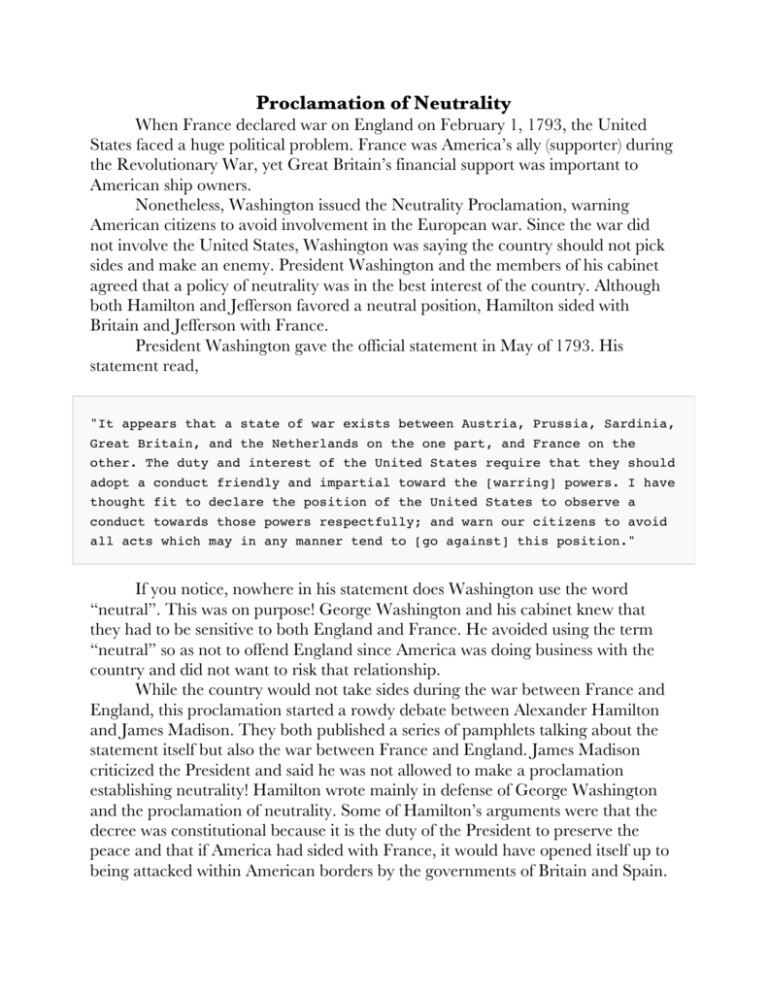
Proclamation of Neutrality When France declared war on England on February 1, 1793, the United States faced a huge political problem. France was America’s ally (supporter) during the Revolutionary War, yet Great Britain’s financial support was important to American ship owners. Nonetheless, Washington issued the Neutrality Proclamation, warning American citizens to avoid involvement in the European war. Since the war did not involve the United States, Washington was saying the country should not pick sides and make an enemy. President Washington and the members of his cabinet agreed that a policy of neutrality was in the best interest of the country. Although both Hamilton and Jefferson favored a neutral position, Hamilton sided with Britain and Jefferson with France. President Washington gave the official statement in May of 1793. His statement read, "It appears that a state of war exists between Austria, Prussia, Sardinia, Great Britain, and the Netherlands on the one part, and France on the other. The duty and interest of the United States require that they should adopt a conduct friendly and impartial toward the [warring] powers. I have thought fit to declare the position of the United States to observe a conduct towards those powers respectfully; and warn our citizens to avoid all acts which may in any manner tend to [go against] this position." If you notice, nowhere in his statement does Washington use the word “neutral”. This was on purpose! George Washington and his cabinet knew that they had to be sensitive to both England and France. He avoided using the term “neutral” so as not to offend England since America was doing business with the country and did not want to risk that relationship. While the country would not take sides during the war between France and England, this proclamation started a rowdy debate between Alexander Hamilton and James Madison. They both published a series of pamphlets talking about the statement itself but also the war between France and England. James Madison criticized the President and said he was not allowed to make a proclamation establishing neutrality! Hamilton wrote mainly in defense of George Washington and the proclamation of neutrality. Some of Hamilton’s arguments were that the decree was constitutional because it is the duty of the President to preserve the peace and that if America had sided with France, it would have opened itself up to being attacked within American borders by the governments of Britain and Spain.
